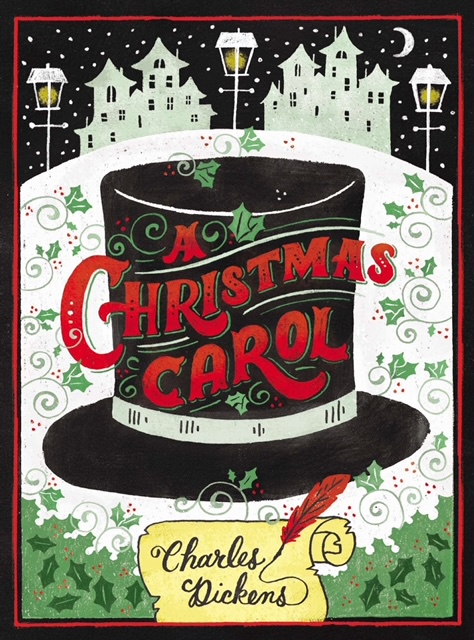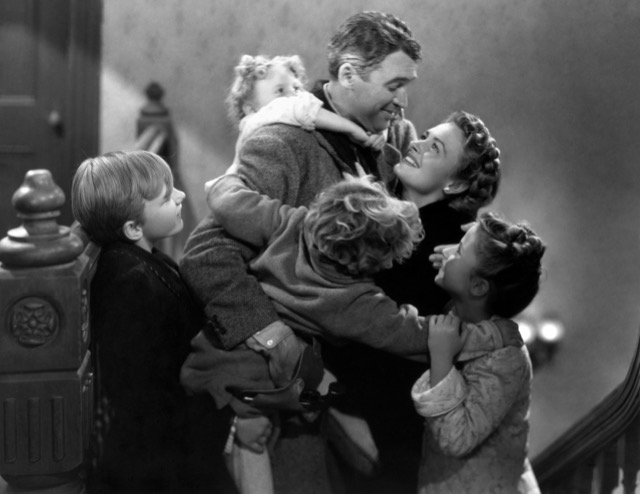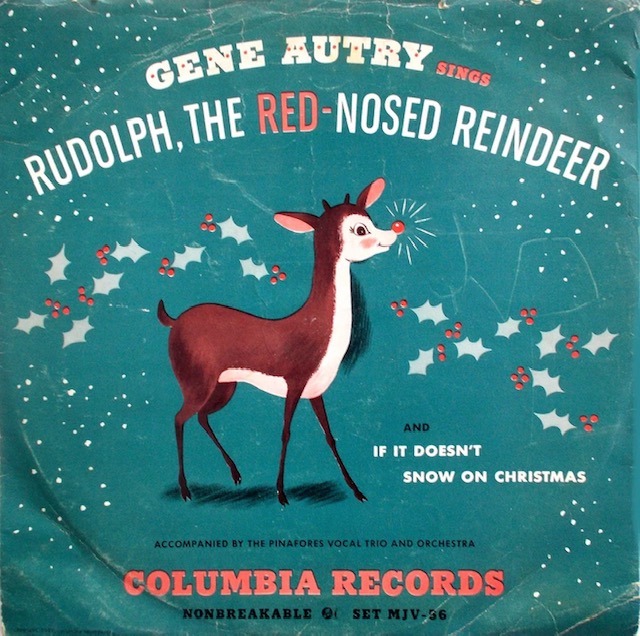By Alex Kava
A Christmas Carol, It’s A Wonderful Life, and Rudolph the Red Nose Reindeer. They’ve become synonymous with Christmas, but did you know they almost didn’t happen?
A Christmas Carol

In 1843, Charles Dickens already enjoyed literary success with several novels, including Oliver Twist. But sales were slowing, and his recent, Martin Chuzzlewit was such a disappointment his publisher declined to publish his next project. Instead, they told Dickens he might consider putting it in a magazine. After all, the work was too short—only about 30,000 words. And besides, Christmas wasn’t a big deal back then, even though Dickens insisted it was a “Ghostly little book.”
But Dickens was desperate. He needed not only to jumpstart his career, but also his finances. Some say he was close to bankruptcy, not able to pay his mortgage, plus his wife was pregnant with their fifth child. Dickens had written that “short book” in a matter of six intense weeks, and he was determined to publish it even if he had to do it himself.
That’s exactly what he did. He self-published it.
On December 19, 1843, A Christmas Carol went on sale. By Christmas Eve, the first 6,000 copies sold out. By the following spring the book had run through seven editions, and Dickens’ publisher was back on board.
A Christmas Carol continues to be one of the all-time bestselling books. Even Dickens couldn’t have predicted the cultural impact. Every generation since knows Ebenezer Scrooge, because Dickens refused to let go of that “short book.”
It’s a Wonderful Life
It’s A Wonderful Life didn’t have as difficult of a time being made. Director Frank Capra believed wholeheartedly in the film, but he didn’t view it as a Christmas movie. The release was moved up to December 1946 only so it could be considered for that year’s Academy Awards.

It received five nominations, but the movie failed to make a profit, coming nowhere close to recouping its budget. By Hollywood’s terms, it was a flop. Ultimately, it put an end to Capra’s career and to Liberty Films. For years, It’s a Wonderful Life remained shelved, part of a library of titles bought and sold by a string of production companies.
But we all know George Bailey’s story, so what happened?
The movie’s revival was a fluke. Perhaps a simple clerical error. The new owner, Republic Pictures, failed to extend the movie’s copyright. Back then, copyright law protected creative works for twenty-eight years at a time.
So, in 1974, It’s A Wonderful Life lapsed into the public domain. Distributors everywhere picked it up, because they could virtually air it for free, and all of them did just that. Over and over again. Every Christmas. Suddenly, it was a Christmas staple. Seventy-six years after its creation, it still tops the best Christmas movie lists.
Rudolph the Red-Nosed Reindeer
In 1939, Robert L. May, a catalog writer for Montgomery Ward, wrote a little poem for the store’s annual holiday booklet giveaway. He based his tale about an outcast reindeer on his own childhood as the smallest boy in his class, a nerd who was often bullied by his classmates. His poem was a hit.
Years later, the department store returned May the rights to his poem. His songwriter brother-in-law, Johnny Marks, composed a melody for it. But in 1947, everyone turned down the song, including Bing Crosby and Perry Como.
That would have been the end of Rudolph the Red-Nosed Reindeer if not for a demo that ended up in the hands of Gene Autry’s wife, Ina. She loved the “Ugly Duckling” theme and brought it to her husband, suggesting it would be a great companion to his already successful, Here Comes Santa Claus.
There was only one problem. Gene Autry hated the song and refused to record it.

Ina persisted, even winning over Autry’s musical director. Much later, at a recording session, during a break and wanting to fill the time, Autry said, “How about that little song that you’re all so crazy about?”
They recorded it in one take. What happened next surprised them all.
Rudolph soared to #1 on the Billboard single charts. The song sold two million copies in its first year. It even started a new trend for Autry, who began recording songs specifically for children.
For decades, Rudolph remained the bestselling single of all time, second only to Bing Crosby’s White Christmas. Since 1949, over 500 artists have recorded their own versions, including Bing Crosby, who initially rejected it. Autry’s version remains the favorite.
These three are testaments to the creative journey, a behind-the-scenes process that rarely gets much attention. It’s often a struggle. Sometimes it’s messy. Usually, it’s unpredictable. Success is never guaranteed. But when an audience embraces the book, the movie, or the song…that’s when the magic happens. Maybe even some Christmas magic.
What’s your favorite holiday classic book, movie or song?
















































What a fascinating list of Christmas stories we all love. But Dickens self-published? Wow! Without a website, Amazon or the internet – I wonder how he “spread the word” so everyone knew to buy A CHRISTMAS CAROL? Whatever he did has to be an inspiration to the rest of the author population. As for a Christmas classic – in addition to your three, the other night we watched MIRACLE ON 34TH STREET – and loved it – again! Thanks for this great post!!
Karna, I know, right? I was surprised when I found that tidbit about publishing it himself. But he was already an established author, so I’m guessing he knew a lot of booksellers. But I can’t imagine the process.
Not only is this post a fascinating slice of history, it’s a keep-on-going to creatives everywhere!
One of my favorites isn’t always easy to find–it’s the Claymation Christmas Celebration featuring the California Raisins. Just a little half-hour show of different presentations of carols, but some of them still make me laugh hysterically!!
“Success is never guaranteed,” Truer words were never written. But perseverance and hard work better your odds immeasurablly. Go, Dickens!! I knew I liked that guy. I read “A Christmas Carol’ every December.
I love finding out this “stuff”. Who would have known? An interesting part of life’s history behind the peeps who write. I bet all authors have a “story” or two to tell about getting published. Interesting piece.
The fact success can happen so long after a book is published or a song is written, or through a different path, gives me hope. My favorite book that I’ve written, DARK WATERS, received some critical acclaim, but didn’t do as well as expected in the market. The audio version was an Anthony nominee, proving to me that it plays well in a performance venue. Maybe someday the right person will come across my story and the rest will be history.
Interesting blog. Thanks, Alex!